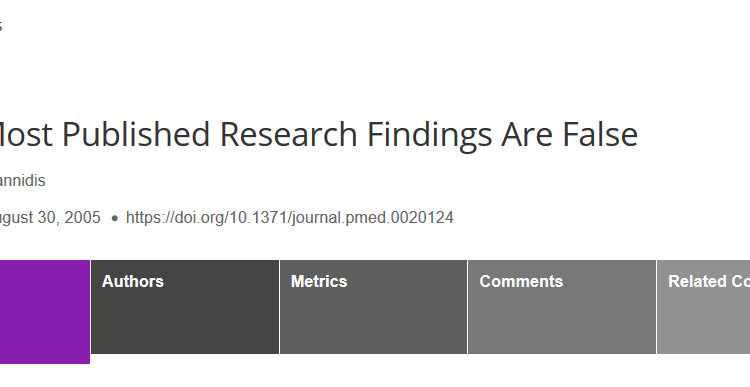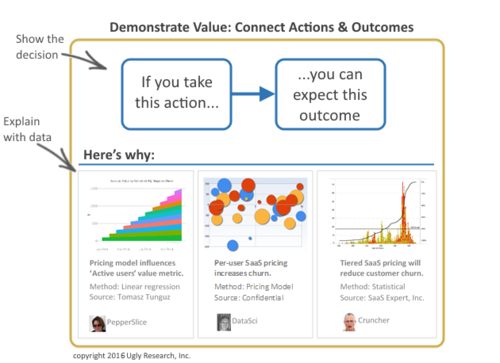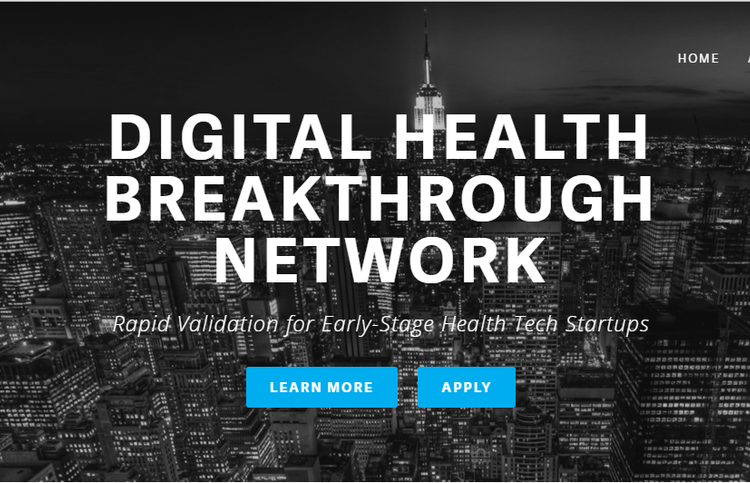1. Much has happened since Why Most Published Research Findings Are False, the much-discussed PLOS essay by John P. A. Ioannidis offering evidence that “false findings may be the majority or even the vast majority of published research claims….” Why are so many findings never replicated? Ioannidis listed study power and bias, the number of […]
When presenting findings, it’s essential to show their reliability and relevance. Today’s post discusses how to show your evidence is reproducible; next week in Part 2, we’ll cover how to show it’s relevant. Show that your insights are reproducible. With complexity on the rise, there’s no shortage of quality problems with traditional research: People are […]
1. Present controversial evidence with just one slide. Throw out your slide deck and try the Extreme Presentation method, developed by Andrew Abela and Paul Radich during years of presentations at Procter & Gamble, McKinsey, and other leading companies. The technique involves first showing the audience the big-picture concept so they’ll immediately have a sense […]
1. SPOTLIGHT: Warby Parker data scientist on creating data-driven organizations. What does it take to become a data-driven organization? “Far more than having big data or a crack team of unicorn data scientists, it requires establishing an effective, deeply ingrained data culture,” says Carl Anderson. In his recent O’Reilly book Creating a Data-Driven Organization, he […]
1. #rapidisthenewblack The need for speed is paramount, so it’s crucial that we test ideas and synthesize evidence quickly without losing necessary rigor. Examples of people working hard to get it right: The Digital Health Breakthrough Network is a very cool idea, supported by an A-list team. They (@AskDHBN) seek New York City-based startups who […]
1. Free beer for a year for anyone who can work perfume, velvety voice, and ‘Q1 revenue goals were met’ into an appropriate C-Suite presentation. Prezi is a very nice tool enabling you to structure a visual story, without forcing a linear, slide-by-slide presentation format. The best part is you can center an entire talk […]
1. Do we judge women’s decisions differently? Cognitive psychologist Therese Huston’s book is How Women Decide: What’s True, What’s Not, and What Strategies Spark the Best Choices. It may sound unscientific to suggest there’s a particular way that several billion people make decisions, but the author doesn’t seem nonchalant about drawing specific conclusions. The book […]
1. Human fallibility → Debiasing techniques → Better science Don’t miss Regina Nuzzo’s fantastic analysis in Nature: How scientists trick themselves, and how they can stop. @ReginaNuzzo explains why people are masters of self-deception, and how cognitive biases interfere with rigorous findings. Making things worse are a flawed science publishing process and “performance enhancing” statistical […]






